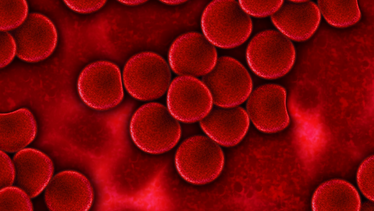This Week’s CGT News: Investigating the Long-Term Safety of Gene Therapy for Hemophilia B
Our latest news roundup reports on CAR t cell therapy at J&J and a second patient death linked to a Sarepta gene therapy.
| 4 min read | News

Credit: Pixabay.com
Second death linked to Sarepta’s Elevidys
A second patient has died from reported acute liver failure after receiving Sarepta Therapeutics’ Elevidys, the only FDA-approved gene therapy for Duchenne muscular dystrophy (DMD). The company is now temporarily suspending shipments of the therapy for non-ambulatory patients and working to convene an independent group of experts in DMD and liver health. According to a statement, “This panel will evaluate data and assess our proposed regimen, which includes sirolimus and is supported by preclinical data demonstrating the effectiveness of additional immunosuppression in moderating liver enzyme elevations, a key factor in mitigating potential safety events. Sarepta will share the panel's recommendations with the U.S. Food & Drug Administration (FDA), and implementation of any new regimen will be subject to FDA guidance and allowance.”
Dosing has also been paused in the ENVISION clinical study to allow for evaluation of a protocol amendment that will focus on an enhanced immunosuppressive regiment for non-ambulatort patients.
Investigating the long-term safety of gene therapy for hemophilia B
A 13-year follow-up study published in The New England Journal of Medicine by researchers at St. Jude Children’s Research Hospital and University College London has demonstrated the long-term safety and efficacy of gene therapy for hemophilia B. Ten adults with severe disease received a one-time intravenous infusion of an adeno-associated virus vector carrying the gene for clotting factor IX between 2010 and 2012. Over the 13-year follow-up period, all patients maintained stable expression of factor IX, with no late-emerging toxicities or serious adverse events.
Annualized bleeding rates decreased from an average of 14.0 to 1.5 episodes, and patients experienced significantly reduced reliance on factor IX supplementation. Although factor IX levels remained below the normal physiologic range, the clinical outcomes were markedly improved. The study provides the longest duration of data available for gene therapy in hemophilia B, offering critical evidence for the durability, safety, and therapeutic benefit of a single-dose gene transfer approach.
“It’s incredibly rewarding to see the sustained safety and efficacy, which truly validates the potential of gene therapy as a one-time treatment for this condition,” said the study’s chief investigator, Amit Nathwani. “Our findings answer critical questions about the long-term durability of gene therapy, offering profound hope and a significantly improved quality of life for patients.”
J&J dual-antigen CAR T approach shows promise
Preliminary data from Johnson & Johnson’s phase 1b clinical trial of bispecific CAR T-cell therapy, JNJ-90014496 (also known as JNJ-4496), in patients with relapsed or refractory large B-cell lymphoma shows a complete response rate of 75–80 percent.
JNJ-4496 is designed to simultaneously target the CD19 and CD20 antigens, with the aim of reducing the likelihood of antigen escape, a known mechanism of resistance in single-target CAR T-cell therapies. The therapy is part of Johnson & Johnson’s broader collaboration with Legend Biotech.
“There is a pressing need to continue advancing therapies for patients with relapsed or refractory diffuse large B-cell lymphoma. Only about 40 percent of patients have long-term remissions with currently available single-antigen-targeting CD19 CAR T therapies,” said Krish Patel, Director of Lymphoma Research, Sarah Cannon Research Institute and principal study investigator. “The data presented today show encouraging clinical activity and promising safety, and represent a step forward in delivering a potential new treatment option to patients living with the most common type of aggressive lymphoma.”
Stargardt disease funding
SpliceBio has completed a $135 million Series B financing round to support the clinical development of its lead gene therapy program, SB-007, for Stargardt disease, and to expand its pipeline of genetic medicines. The financing was co-led by EQT Life Sciences and Sanofi Ventures, with participation from new and existing investors, including the Roche Venture Fund and Ysios Capital. SB-007, based on SpliceBio’s proprietary Protein Splicing platform, is the first dual adeno-associated viral (AAV) gene therapy for Stargardt disease to receive regulatory clearance for clinical development from both the FDA and the UK MHRA. The therapy is designed to restore a functional ABCA4 protein by delivering large genes that exceed the size limits of standard AAV vectors. Proceeds from the round will also support the advancement of additional gene therapy programs in ophthalmology, neurology, and other therapeutic areas where large genes are implicated in disease.
Parkinson’s gene therapy set for clinical studies
The FDA has cleared Capsida Biotherapeutics’ Investigational New Drug application for CAP-003, an intravenously administered gene therapy candidate for Parkinson’s disease associated with GBA mutations (PD-GBA). The company plans to initiate a phase I/II clinical trial, with the first patient expected to be dosed in the third quarter of 2025.
CAP-003 is designed to deliver a functional copy of the GBA1 gene across the blood-brain barrier using Capsida’s proprietary engineered capsid technology. In preclinical studies, the therapy demonstrated dose-dependent increases in glucocerebrosidase activity in key brain regions, exceeding the enzyme activity threshold expected to be clinically meaningful.



















